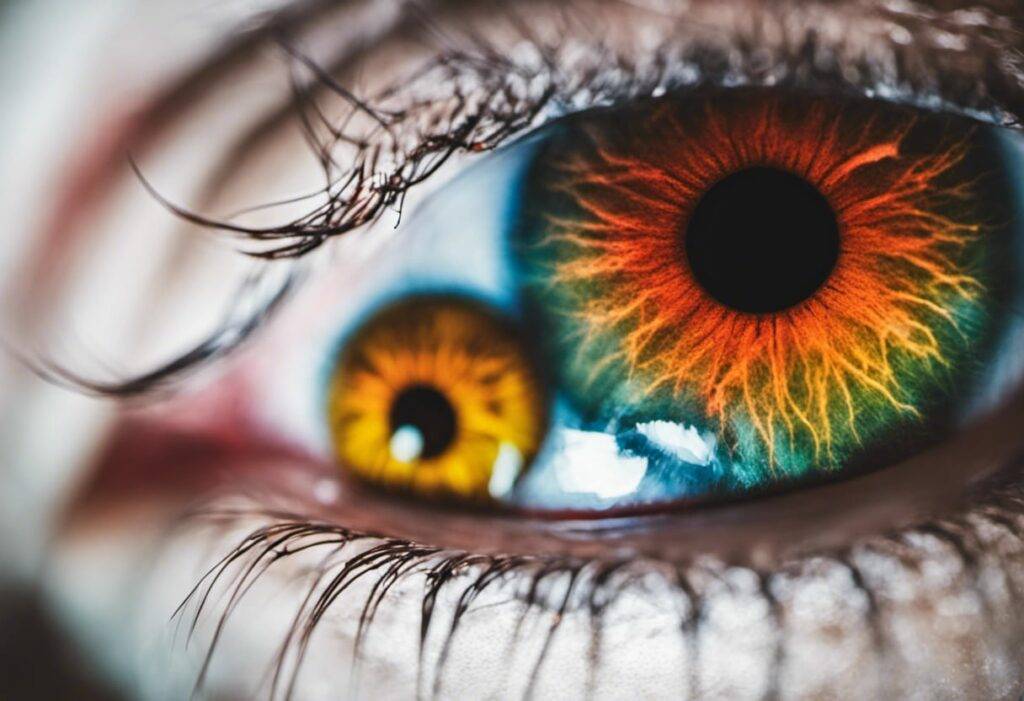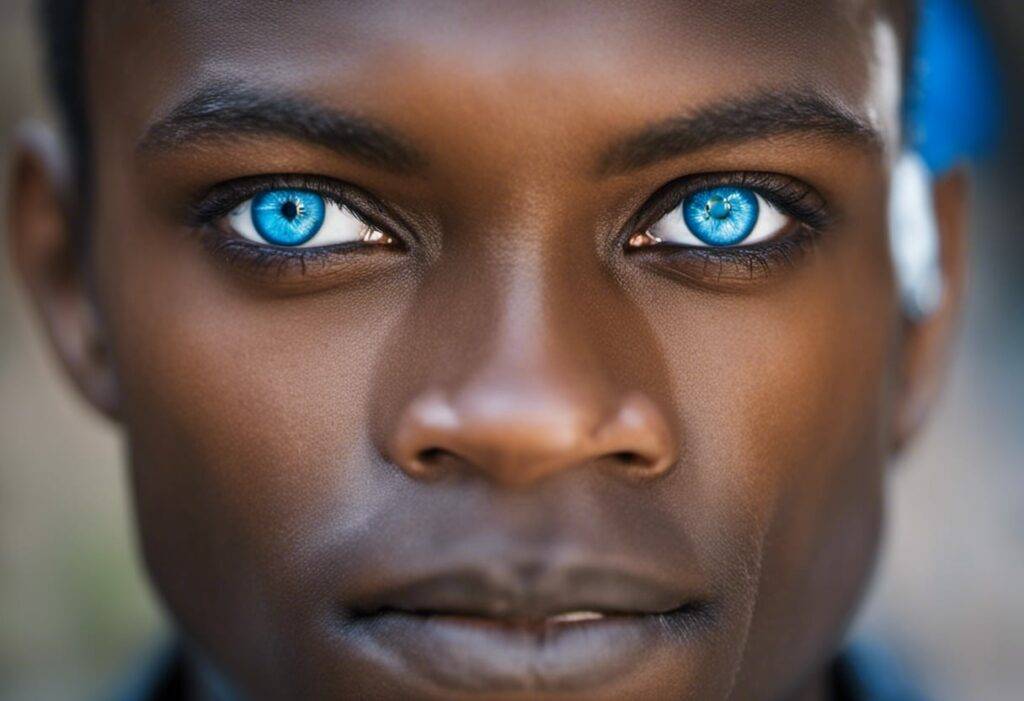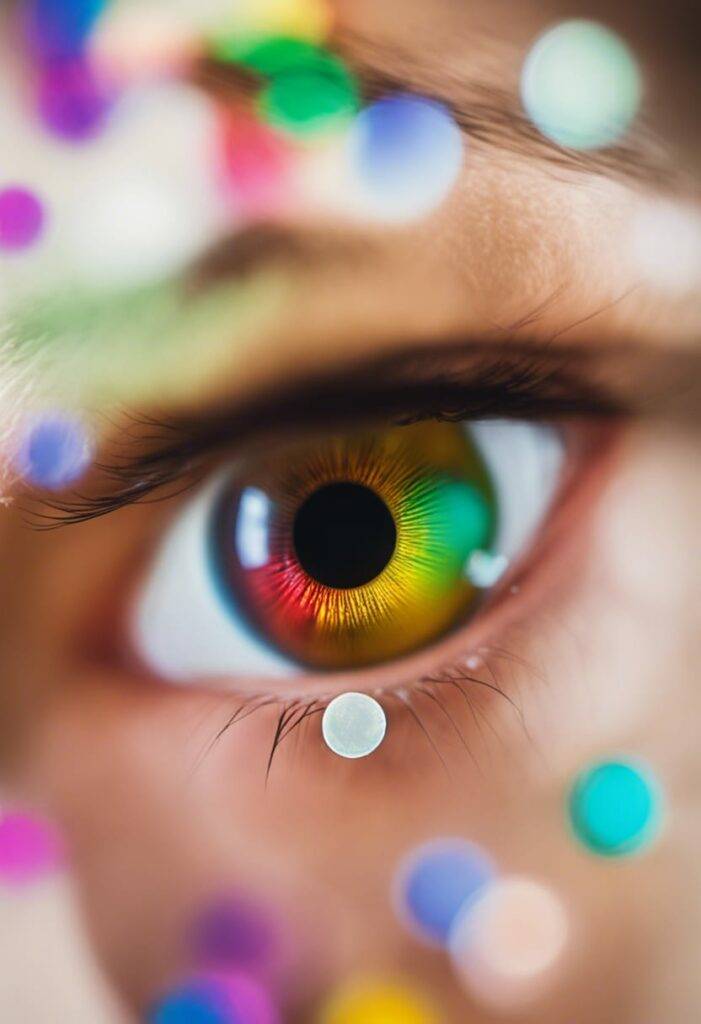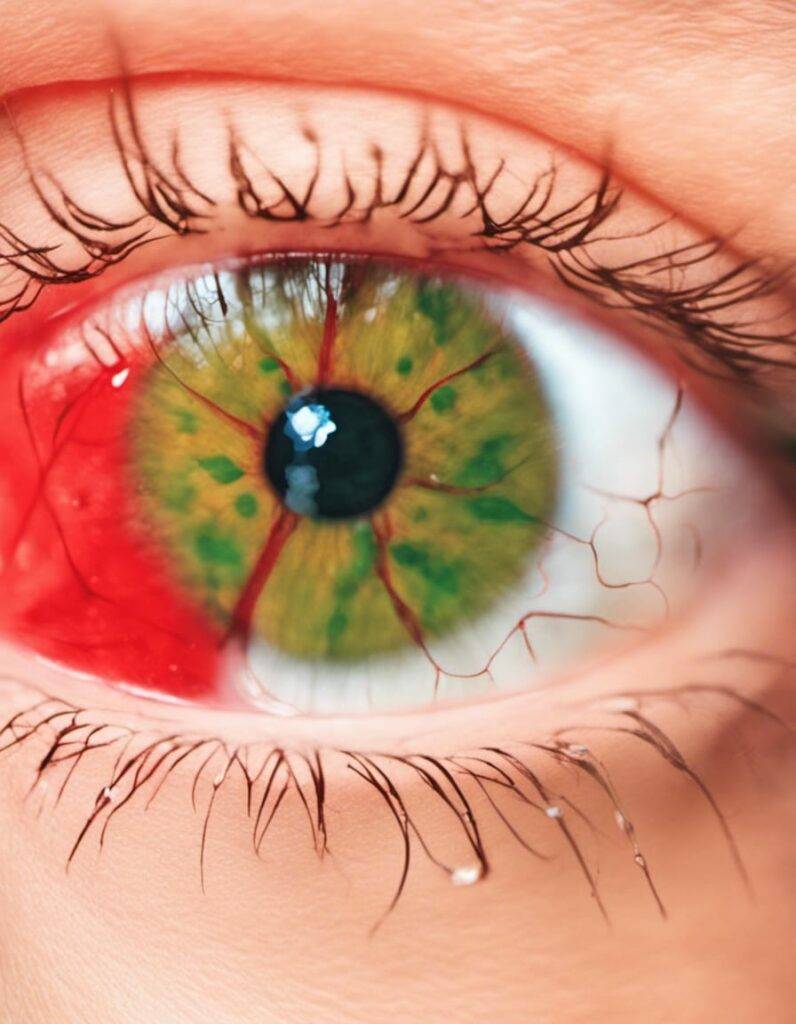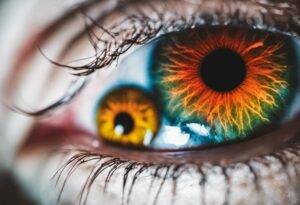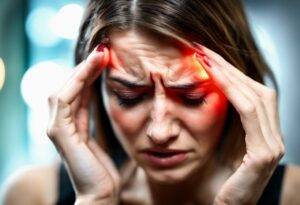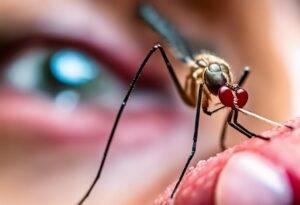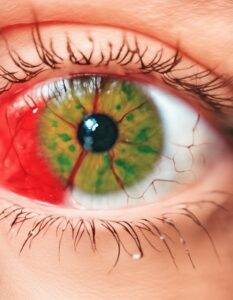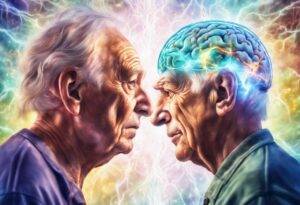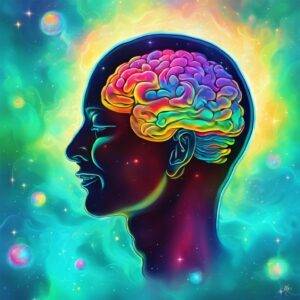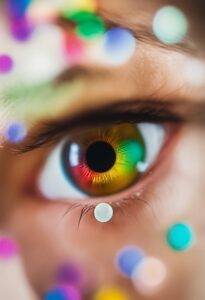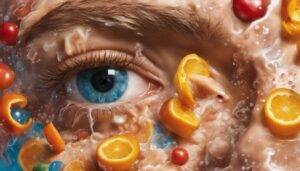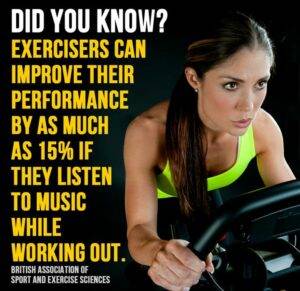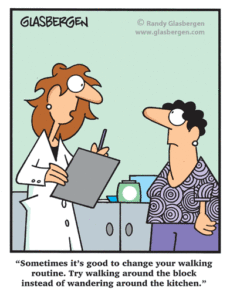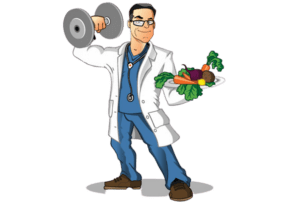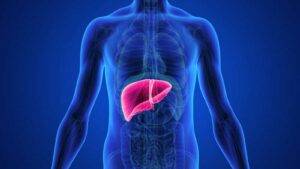Welcome to our comprehensive post on medical conditions of the eye! In this extensive guide, we aim to provide you with a one-stop resource to answer all your questions and concerns related to various eye conditions. Whether you’re seeking information about common issues, such as nearsightedness or cataracts, or more specialized conditions, like macular degeneration or glaucoma, we’ve got you covered. Our goal is to empower you with knowledge and understanding, allowing you to make informed decisions about your eye health. So, let’s delve into the fascinating world of eye conditions and discover everything you need to know!
Enhancing Your Understanding of Eye Conditions and Their Impacts
The Questions:
1. What are the most common eye diseases and conditions?
2. How can I prevent eye diseases and maintain good eye health?
3. What are the warning signs and symptoms of common eye diseases?
4. How often should I get my eyes checked by an eye care professional?
5. What are the risk factors associated with developing eye diseases?
6. Are eye diseases hereditary, and if so, what can be done to minimize the risk?
7. Can lifestyle choices, such as diet and exercise, affect eye health and reduce the risk of diseases?
8. What are the potential long-term consequences of neglecting eye care and not seeking treatment for eye diseases?
9. What are the treatments for common eye diseases, and how effective are they?
10. Are there any alternative or complementary therapies that can help treat or manage eye conditions?
11. What are the surgical options available for treating various eye diseases?
12. Are there any non-invasive treatments or home remedies that can improve eye health?
13. How does age affect eye health, and what are the most common age-related eye diseases?
14. Can eye diseases cause permanent vision loss, and is it preventable or reversible?
15. How can diabetes affect the eyes and what should individuals with diabetes be aware of regarding their eye health?
16. Are there specific precautions individuals with certain health conditions or medications should take to preserve their eye health?
17. Can eye diseases be detected early through routine eye exams, and is early detection crucial for effective treatment?
18. Are there specialized eye exams or tests to diagnose specific eye diseases or conditions?
19. How do eye diseases, such as glaucoma and macular degeneration, progress over time, and what are the treatment options at different stages?
20. Can eye exercises or vision therapy help improve certain eye conditions or reduce the risk of developing eye diseases?
21. Are there any immediate steps I should take if I notice sudden changes in my vision or experience eye pain or discomfort?
22. What are the potential complications or side effects of treatments for different eye diseases?
23. What are the most effective ways to manage dry eyes and prevent further complications?
24. What role does nutrition play in maintaining good eye health, and which foods are particularly beneficial?
25. How does smoking impact eye health, and what are the risks associated with smoking and eye diseases?
26. Are there any eye diseases that primarily affect children, and how can parents protect their children’s eye health?
27. Are there specific eye diseases or complications associated with prolonged use of electronic devices or excessive screen time?
28. Can eye diseases cause headaches or other related symptoms, and how are they interconnected?
29. What are the most important steps to take to protect the eyes when participating in sports or other physical activities?
30. Are there any specific eye diseases or conditions that pregnant individuals should be aware of, and how can they minimize potential risks?
31. How do eye diseases affect night vision, and are there any preventive measures or treatments available?
32. Can eye diseases cause sensitivity to light, and what are the potential underlying causes?
33. Is there a link between allergies and eye diseases, and how can allergies impact overall eye health?
34. What is the impact of prolonged exposure to ultraviolet (UV) light on the eyes, and what preventive measures should individuals take?
35. What is the relationship between eye diseases and other systemic health conditions, such as high blood pressure or autoimmune disorders?
36. How can stress and mental health issues affect eye health, and what steps can be taken to mitigate these effects?
37. Can eye diseases cause visual disturbances, such as floaters, flashes of light, or halos around objects?
38. What is the link between eye diseases and certain medications, and how can individuals manage the potential side effects?
39. Can eye diseases lead to changes in color vision or perception?
40. Are there any specific occupational hazards that can have a detrimental effect on eye health?
41. What is the impact of excessive alcohol consumption on eye health, and are there any associated eye diseases?
42. Can eye diseases cause double vision, and what are the potential underlying causes?
43. Are there specific eye diseases or conditions that individuals with a history of eye trauma should be aware of?
44. What are the most effective ways to protect the eyes from environmental factors, such as pollution or harsh weather conditions?
45. Can eye diseases cause changes in depth perception or difficulty with judging distances accurately?
46. How does high cholesterol or cardiovascular disease affect eye health, and are there any associated eye diseases?
47. Are there any specific eye diseases or conditions that individuals with a family history of eye problems should be particularly cautious of?
48. What role does sleep play in maintaining good eye health, and how can sleep disorders affect the eyes?
49. Can eye diseases cause changes in the field of vision or loss of peripheral vision?
50. What is the impact of prolonged use of contact lenses on eye health, and how can individuals minimize potential risks?
51. How can hormone changes, such as during menopause, affect eye health, and are there any associated eye diseases?
52. Are there any specific precautions individuals with a compromised immune system should take to protect their eye health?
53. Can eye diseases cause changes in eye pressure, and what are the potential implications?
54. What are the potential effects of prolonged exposure to blue light emitted by digital devices, and how can individuals reduce the associated risks?
55. How can eye diseases affect color vision, and are there any specific color-related vision disorders?
56. Are there specific eye diseases or conditions that individuals with a history of smoking marijuana should be aware of?
57. Can eye diseases cause pain or discomfort, and what are the potential underlying causes?
58. What are the potential risks and complications associated with refractive surgeries, such as LASIK or PRK?
59. Can eye diseases be prevented through the use of supplements or vitamins, and which ones are recommended for optimal eye health?
60. How do eye diseases affect the overall quality of life, and are there any support systems available for individuals coping with vision loss or impairment?
1. What are the most prevalent eye diseases and conditions?
The most common eye diseases and conditions include cataracts, glaucoma, age-related macular degeneration (AMD), diabetic retinopathy, and refractive errors such as myopia (nearsightedness) and hyperopia (farsightedness).
Bonus Fact: Cataracts affect approximately 24.4 million Americans aged 40 and older, making it one of the most common eye diseases in the United States. (Source: National Eye Institute – https://www.nei.nih.gov/learn-about-eye-health/resources-for-health-educators/eye-health-data-and-statistics/prevalence-of-eye-diseases-in-the-u-s)
2. What can I do to prevent eye diseases and maintain good eye health?
To prevent eye diseases and maintain good eye health, you can follow several practices. These include regular eye exams, eating a nutritious diet that includes foods rich in antioxidants, protecting your eyes from UV radiation by wearing sunglasses and hats, avoiding smoking, practicing good contact lens hygiene, maintaining a healthy weight, and giving your eyes regular breaks from screen time.
Bonus Fact: Leafy green vegetables, such as spinach and kale, are rich in lutein and zeaxanthin, antioxidants that are beneficial for eye health. Including them in your diet can help reduce the risk of age-related macular degeneration. (Source: American Optometric Association – https://www.aoa.org/patients-and-public/caring-for-your-vision/diet-and-nutrition)
Just a little heads up: some of the links on this site may be affiliate links, which means if you make a purchase through them, we might get a little kickback. But don’t worry, it won’t cost you a cent extra! Think of it as the universe secretly thanking us for helping you find a great deal. Your support keeps the good vibes and coffee flowing and this site growing.
3. What are the warning signs and symptoms of common eye diseases?
The warning signs and symptoms of common eye diseases include blurred or distorted vision, frequent changes in vision, difficulty seeing in low light, eye pain or discomfort, redness or inflammation, dry eyes, double vision, floaters (spots or specks in the vision), and flashes of light. It is important to note that some eye diseases may not show noticeable symptoms in their early stages, underlining the importance of regular eye check-ups.
Bonus Fact: Sudden onset of floaters, accompanied by flashes of light and the sensation of a curtain being drawn over the field of vision, may be indicative of a retinal detachment, or a serious eye emergency requiring immediate medical attention. (Source: Mayo Clinic – https://www.mayoclinic.org/diseases-conditions/retinal-detachment/symptoms-causes/syc-20351344)
4. How frequently should I have my eyes checked by an eye care professional?
It is generally recommended that adults with no specific risk factors for eye diseases have a comprehensive eye exam every 1-2 years. However, the frequency may vary depending on individual factors, such as age, medical history, family history of eye diseases, and the presence of any visual symptoms. People with existing eye conditions or those at higher risk may require more frequent eye exams.
Bonus Fact: Adults over the age of 60 should have eye exams annually as they are at a higher risk of developing age-related eye diseases such as cataracts and glaucoma. (Source: American Academy of Ophthalmology – https://www.aao.org/eye-health/tips-prevention/how-often-should-you-have-eye-exam)
5. What are the risk factors associated with the development of eye diseases?
Several risk factors contribute to the development of eye diseases. These include advancing age, a family history of eye diseases, certain medical conditions like diabetes and hypertension, excessive UV exposure, smoking, obesity, a high-fat diet, prolonged use of digital screens without breaks, and occupational hazards like prolonged exposure to harmful substances or eye strain.
Bonus Fact: Smoking is a major risk factor for developing age-related macular degeneration (AMD) and cataracts. Quitting smoking can significantly reduce the risk of these eye diseases. (Source: National Eye Institute – https://www.nei.nih.gov/learn-about-eye-health/healthy-vision/keep-your-eyes-healthy)
6. Are eye diseases hereditary, and if so, what can be done to minimize the risk?
Yes, some eye diseases can be hereditary, meaning they can be passed down from generation to generation through genetic factors. Conditions like glaucoma, age-related macular degeneration (AMD), and certain types of cataracts have a genetic component. However, having a family history of these diseases does not guarantee that you will develop them.
To minimize the risk of hereditary eye diseases, it’s crucial to undergo regular eye exams, especially if there is a family history. Early detection and intervention can significantly slow down the progression of these conditions, helping to preserve vision. Lifestyle factors such as maintaining a healthy diet, protecting your eyes from UV rays, and avoiding smoking can also play a role in minimizing the risk of eye diseases.
Bonus Fact: Did you know that some hereditary eye diseases have delayed onset, meaning they may not manifest symptoms until later in life? Regular eye exams are essential, as they can help detect these conditions before irreversible damage occurs.
Source:
Title: Hereditary Eye Diseases
URL: https://www.aao.org/eye-health/diseases/what-are-hereditary-eye-disease
7. Can lifestyle choices, such as diet and exercise, affect eye health and reduce the risk of diseases?
Absolutely! Lifestyle choices, including diet and exercise, can significantly impact eye health and help reduce the risk of various eye diseases. A balanced diet rich in antioxidants, vitamins (especially A, C, and E), minerals, and omega-3 fatty acids can promote healthy eyes. Adding foods like leafy greens, fish, citrus fruits, and nuts to your diet can support overall eye health.
Regular exercise is also beneficial for maintaining good eye health. Engaging in aerobic activities, such as walking or jogging, can improve blood circulation, which ensures a steady supply of oxygen and nutrients to the eyes. Exercise can also help regulate intraocular pressure, reducing the risk of conditions like glaucoma.
Bonus Fact: Did you know that regular exercise can lower the risk of age-related macular degeneration (AMD) by up to 70 percent? It’s another reason to prioritize physical activity for overall eye health.
Source:
Title: Diet and Eye Health
URL: https://www.aoa.org/healthy-eyes/caring-for-your-eyes/diet-and-nutrition?sso=y
8. What are the potential long-term consequences of neglecting eye care and not seeking treatment for eye diseases?
Neglecting eye care and not seeking treatment for eye diseases can have severe long-term consequences. Without proper intervention, eye diseases can progress, leading to irreversible vision loss or even blindness. Conditions like glaucoma, diabetic retinopathy, and cataracts can cause a gradual decline in eyesight if left untreated.
Additionally, some eye diseases, if left unchecked, can lead to secondary complications that affect overall health. For example, untreated diabetic retinopathy can result in vision loss and increase the risk of other diabetes-related complications like kidney disease or heart problems.
Regular eye exams and timely treatment are crucial for detecting and managing eye diseases, ensuring the best possible outcomes, and preserving vision.
Bonus Fact: Did you know that vision loss due to eye diseases can have a profound impact on a person’s quality of life, affecting their independence, mental health, and overall well-being? Seeking timely treatment and regular eye care is essential to maintaining a good quality of life.
Source:
Title: The Importance of Regular Eye Exams
URL: https://www.aao.org/eye-health/tips-prevention/eye-exams-101?sso=y
Just a little heads up: some of the links on this site may be affiliate links, which means if you make a purchase through them, we might get a little kickback. But don’t worry, it won’t cost you a cent extra! Think of it as the universe secretly thanking us for helping you find a great deal. Your support keeps the good vibes flowing and this site growing.
9. What are the treatments for common eye diseases, and how effective are they?
The treatment options for common eye diseases vary depending on the specific condition. For example, glaucoma can be managed with medications, laser therapy, or surgery to reduce intraocular pressure and prevent further damage to the optic nerve. Age-related macular degeneration (AMD) can be treated with injections of anti-vascular endothelial growth factors (VEGF) to slow down disease progression and preserve vision.
Cataracts, a common age-related condition, can be effectively treated with surgery, where the cloudy lens is replaced with an artificial one. Diabetic retinopathy may require laser treatment or injections to manage abnormal blood vessels in the retina, aiming to prevent vision loss.
The effectiveness of these treatments varies depending on the individual case and the stage of the disease. Early detection and intervention usually offer better outcomes. It’s crucial to work closely with an eye care professional to determine the most appropriate treatment plan for each specific eye disease.
Bonus Fact: Did you know that cataract surgery is one of the most commonly performed surgeries globally, with a success rate of over 95%? It is a highly effective treatment option for restoring vision affected by cataracts.
Source:
Title: Eye Conditions and Treatment
URL: https://www.aao.org/eye-health/diseases?ref=hg-complementarytherapies
10. Are there any alternative or complementary therapies that can help treat or manage eye conditions?
While conventional medical treatments are the primary approach for managing eye conditions, some alternative or complementary therapies may provide additional support. It’s important to note that these therapies should not replace medical treatment but can be used in conjunction with it.
Some alternative therapies that are often considered include acupuncture, herbal supplements containing antioxidants and omega-3 fatty acids, and eye exercises. However, evidence regarding their effectiveness in treating specific eye diseases is limited, and results may vary among individuals. It’s crucial to consult with an eye care professional before considering any alternative therapies.
Bonus Fact: Did you know that research suggests omega-3 fatty acids found in fish oil supplements may help reduce the risk of dry eye syndrome, a common condition that causes discomfort and vision problems? However, further studies are needed to confirm its efficacy.
Source:
Title: Complementary and Alternative Medicine for Eye Conditions
URL: https://www.aao.org/eye-health/tips-prevention/complementary-alternative-medicine
11 What are the surgical options available for treating various eye diseases?
There are several surgical options available to treat various eye diseases, depending on the specific condition. One common procedure is cataract surgery, which involves removing the cloudy and replacing it with an artificial one. Another surgical option is laser eye surgery, such as LASIK, which corrects refractive errors like nearsightedness or astigmatism by reshaping the cornea. Additionally, retinal detachment can be treated with surgery where the retina is reattached to the back of the eye. These are just a few examples, and the choice of surgery depends on the specific eye disease and the individual’s condition.
Bonus Fact: Did you know that the earliest recorded eye surgery dates back to ancient Egypt? Eye surgeries were performed as early as 2500 BCE, as evidenced by papyrus texts found during archaeological excavations.
Source:
Title: “Eye Surgery“
URL: https://www.ncbi.nlm.nih.gov/pmc/articles/PMC4822705/
12. Are there any non-invasive treatments or home remedies that can improve eye health?
While surgical interventions are often necessary for specific eye conditions, there are non-invasive treatments and home remedies that can help improve overall eye health. One of the most crucial aspects is maintaining a healthy lifestyle and diet. Consuming a diet rich in antioxidants, such as leafy green vegetables, citrus fruits, and omega-3 fatty acids found in fish, can support eye health. Regular eye exercises and relaxation techniques may also help alleviate eye strain and improve blood circulation to the eyes. Moreover, practicing good eye hygiene, such as avoiding excessive rubbing or exposure to harmful irritants, can prevent certain eye conditions.
Bonus Fact: Did you know that blinking regularly is vital for maintaining healthy eyes? Blinking helps to spread tears evenly over the eyes, keeping them lubricated and preventing dryness.
Source:
Title: “Home Remedies for Better Eye Health“
URL: https://www.healthline.com/health/eye-health/home-remedies-for-better-eye-health
13. How does age affect eye health, and what are the most common age-related eye diseases?
Age plays a significant role in eye health, as certain conditions become more prevalent as we grow older. The most common age-related eye diseases include presbyopia, cataracts, glaucoma, and age-related macular degeneration (AMD). Presbyopia is the natural loss of near vision that occurs when the lens loses its flexibility. Cataracts, the clouding of the lens, often develops with age. Glaucoma involves damage to the optic nerve, usually due to increased intraocular pressure. AMD affects the central portion of the retina and can cause significant vision loss over time. Regular eye exams become crucial as we age to detect and manage these conditions promptly.
Bonus Fact: Did you know that age-related macular degeneration (AMD) is the leading cause of severe vision loss in people over the age of 60? It affects approximately 11 million individuals in the United States alone.
Source:
Title: “Age-related macular degeneration“
URL: https://www.mayoclinic.org/diseases-conditions/macular-degeneration/symptoms-causes/syc-20350284
14. Can eye diseases cause permanent vision loss, and is it preventable or reversible?
Eye diseases can indeed cause permanent vision loss, especially if left untreated or if the condition is advanced. Conditions like advanced glaucoma or severe optic nerve damage may result in irreversible vision loss. However, early detection, appropriate treatment, and regular eye care can help prevent further deterioration and preserve vision in many cases. It is crucial to emphasize the importance of routine eye examinations, as prompt intervention can often halt or slow the progression of eye diseases, preventing permanent vision loss.
Bonus Fact: Did you know that early detection and treatment can prevent up to 50% of severe vision loss due to eye diseases like glaucoma and age-related macular degeneration (AMD)? Regular eye exams are key to identifying and managing these conditions at an early stage.
Source:
Title: “Vision Loss Can Be Prevented“
URL: https://www.aao.org/newsroom/news-releases/detail/vision-loss-can-be-prevented-new-guidance-from-us
15. How can diabetes affect the eyes, and what should individuals with diabetes be aware of regarding their eye health?
Diabetes can have a significant impact on eye health, potentially leading to diabetic retinopathy, cataracts, glaucoma, and diabetic macular edema. Diabetic retinopathy is a common complication where high blood sugar levels damage the blood vessels in the retina, leading to vision impairment or even blindness. Cataracts are more prevalent in individuals with diabetes and may occur at an earlier age. Likewise, people with diabetes have a higher risk of developing glaucoma, which affects the optic nerve. Diabetic macular edema involves swelling in the macula, causing vision problems. Individuals with diabetes should be diligent in managing their blood sugar levels, maintaining regular check-ups with an eye care professional, and seeking prompt treatment if any vision changes occur.
Bonus Fact: Did you know that the longer someone has diabetes, the greater their risk of developing diabetic retinopathy? Nearly 28% of individuals with diabetes aged 40 years or older in the United States have some degree of diabetic retinopathy.
Source:
Title: “Diabetic Retinopathy“
URL: https://www.nei.nih.gov/learn-about-eye-health/eye-conditions-and-diseases/diabetic-retinopathy
16. Are there specific precautions individuals with certain health conditions or medications should take to preserve their eye health?
Yes, there are specific precautions individuals with certain health conditions or medications should take to preserve their eye health. For instance, individuals with diabetes should ensure they maintain healthy glucose levels as uncontrolled diabetes can lead to diabetic retinopathy, a condition that damages the blood vessels in the retina. It is crucial for individuals with diabetes to monitor their blood sugar levels, follow their treatment plans, and visit their eye care professional regularly for comprehensive eye exams.
Individuals taking medications with potential ocular side effects should also take precautions. Some medications, such as corticosteroids, can increase the risk of developing cataracts or glaucoma. It is advisable for patients to discuss potential side effects of medications with their healthcare providers and regularly visit an eye care professional for monitoring and early detection of any associated eye conditions.
Bonus Fact: Did you know that untreated or poorly controlled high blood pressure can lead to hypertensive retinopathy, a condition characterized by damage to the blood vessels in the retina? Regular blood pressure checks and appropriate management are essential to prevent complications in the eyes.
[Source: American Academy of Ophthalmology – “Diabetic Retinopathy” – https://www.aao.org/eye-health/diseases/diabetic-retinopathy]
[Source: American Academy of Ophthalmology – “Corticosteroids and the Eye” – https://www.aao.org/eye-health/tips-prevention/medications-corticosteroids-eye]
17. Can eye diseases be detected early through routine eye exams, and is early detection crucial for effective treatment?
Yes, eye diseases can often be detected early through routine eye exams, and early detection is crucial for effective treatment. Regular eye exams are not only for assessing visual acuity but also for evaluating the overall health of the eyes. During these comprehensive exams, eye care professionals can identify early signs of eye diseases such as glaucoma, macular degeneration, cataracts, and diabetic retinopathy.
Early detection allows for timely intervention, leading to better treatment outcomes and potentially preventing further vision loss or complications. For example, early detection of glaucoma can help prevent irreversible damage to the optic nerve through the use of medications or surgical interventions to lower intraocular pressure.
Bonus Fact: Did you know that certain eye diseases may not show noticeable symptoms in their early stages? Regular eye exams can help detect these conditions before they progress to more advanced stages and cause significant vision loss.
[Source: American Academy of Ophthalmology –
“Eye Exams Explained” –
https://www.aao.org/eye-health/tips-prevention/eye-exams-explained]
Just a little heads up: some of the links on this site may be affiliate links, which means if you make a purchase through them, we might get a little kickback. But don’t worry, it won’t cost you a cent extra! Think of it as the universe secretly thanking us for helping you find a great deal. Your support keeps the good vibes flowing and this site growing.
18. Are there specialized eye exams or tests to diagnose specific eye diseases or conditions?
Yes, there are specialized eye exams and tests available to diagnose specific eye diseases or conditions. Eye care professionals may employ various diagnostic tools to assess and diagnose specific eye conditions accurately. Examples of these specialized exams and tests include:
– Optical coherence tomography (OCT): This non-invasive imaging technique produces cross-sectional images of the retina, helping diagnose and monitor conditions like macular degeneration and glaucoma.
– Visual field testing (perimetry): This test measures the full extent of the patient’s peripheral vision and is useful in diagnosing and monitoring vision loss associated with conditions such as glaucoma.
– Fluorescein angiography: This procedure involves injecting a dye into a patient’s veins to trace the blood flow in the retina, helping diagnose conditions like diabetic retinopathy or age-related macular degeneration.
These specialized exams and tests greatly aid in the accurate diagnosis of specific eye diseases and conditions.
Bonus Fact: Did you know that some eye conditions, such as color blindness, can be diagnosed using specialized tests that evaluate a person’s ability to perceive and differentiate colors?
[Source: American Academy of Ophthalmology –
“Answers to Frequently Asked Questions About Vision Exams” –
https://www.aao.org/eye-health/tips-prevention/eye-exams-faq]
19. How do eye diseases, such as glaucoma and macular degeneration, progress over time, and what are the treatment options at different stages?
Eye diseases like glaucoma and macular degeneration progress differently over time, and treatment options vary according to the specific stage of the disease.
Glaucoma, often characterized by increased intraocular pressure, can cause gradual damage to the optic nerve. It typically progresses slowly and can lead to peripheral vision loss. In the early stages, treatment may involve eye drops to lower intraocular pressure. As the disease advances, laser therapy or surgical procedures may be recommended to improve fluid drainage and reduce pressure on the optic nerve.
Macular degeneration, on the other hand, affects the central part of the retina (macula), leading to the loss of central vision. In the early stages, certain forms of macular degeneration can be managed through a combination of lifestyle changes, dietary supplements, and regular monitoring. In more advanced cases, medications such as anti-vascular endothelial growth factor (VEGF) injections may be used to slow disease progression and preserve vision.
The most effective treatment options at different stages of these eye diseases are determined by eye care professionals based on the specific characteristics and severity of the condition.
Bonus Fact: Did you know that there are two types of age-related macular degeneration: dry and wet? While there is no cure for dry macular degeneration, wet macular degeneration can often be managed effectively with early intervention, such as anti-VEGF injections.
[Source: American Academy of Ophthalmology –
“Glaucoma” –
https://www.aao.org/eye-health/diseases/glaucoma]
[Source: American Academy of Ophthalmology –
“Age-Related Macular Degeneration” –
https://www.aao.org/eye-health/diseases/amd]
20. Can eye exercises or vision therapy help improve certain eye conditions or reduce the risk of developing eye diseases?
Eye exercises or vision therapy can help improve certain specific eye conditions, but they have limited effectiveness in reducing the risk of developing eye diseases. Eye exercises and vision therapy are often used as part of a comprehensive treatment plan to address specific visual disorders, such as convergence insufficiency or lazy eye (amblyopia).
Vision therapy involves a series of specialized exercises and activities aimed at improving visual processing, eye coordination, and focusing abilities. It is typically supervised and tailored to each individual’s unique visual needs. While vision therapy can be effective for specific conditions, it is not a universal solution for all eye diseases.
To reduce the risk of developing eye diseases, maintaining a healthy lifestyle, regular eye examinations, protecting the eyes from harmful UV radiation, and following recommended safety precautions are more impactful strategies. These practices play a key role in preserving eye health and minimizing the risk of developing various eye diseases.
Bonus Fact: Did you know that excessive use of digital devices and prolonged near-work can strain the eyes and potentially exacerbate existing eye conditions? Taking regular breaks and practicing the 20-20-20 rule (looking at an object 20 feet away for 20 seconds every 20 minutes) can help alleviate eye strain.
[Source: American Optometric Association –
“Vision Therapy” –
https://www.aoa.org/patients-and-public/caring-for-your-vision/vision-therapy]
21. Are there any immediate steps I should take if I notice sudden changes in my vision or experience eye pain or discomfort?
If you notice sudden changes in your vision or experience eye pain or discomfort, it is crucial to take immediate action for your eye health. Here are the steps you should follow:
Step 1: Don’t wait, seek professional help: Contact an eye care specialist such as an optometrist or ophthalmologist as soon as possible. They have the expertise to evaluate your condition accurately and provide appropriate treatment.
Step 2: Avoid self-medication: Refrain from using over-the-counter eye drops or medications without professional guidance. These could potentially worsen your condition or mask underlying issues.
Step 3: Protect your eyes: While waiting for medical help, take measures to protect your eyes. If there is a foreign object in your eye, avoid rubbing it, and try rinsing gently with clean water. If you experience extreme sensitivity to light, wear sunglasses to reduce discomfort.
Step 4: Rest your eyes: If possible, give your eyes some rest by avoiding activities that strain them, such as excessive screen time or reading. Dim the lights in your surroundings to reduce the strain on your eyes.
Step 5: Don’t drive if necessary: If your vision is significantly affected, it is crucial not to drive until you receive appropriate medical evaluation and treatment.
Bonus Fact: Did you know that nearly half of the world’s population will experience at least one episode of eye pain or discomfort in their lifetime? Prompt attention to such symptoms can often prevent further complications.
Source: Mayo Clinic.
“When to see a doctor about your eye symptoms.”
(https://www.mayoclinic.org/symptoms/eye-pain/basics/when-to-see-doctor/sym-20050775)
Just a little heads up: some of the links on this site may be affiliate links, which means if you make a purchase through them, we might get a little kickback. But don’t worry, it won’t cost you a cent extra! Think of it as the universe secretly thanking us for helping you find a great deal. Your support keeps the good vibes flowing and this site growing.
22. What are the potential complications or side effects of treatments for different eye diseases?
Treatments for different eye diseases can vary, and while they are generally safe and effective, there can be potential complications or side effects. It’s important to discuss these risks with your eye care specialist before undergoing any treatment. Here are some potential complications and side effects that may occur:
– Eye surgery complications: Procedures like cataract surgery, corneal transplantation, or laser eye surgeries, although generally safe, can have risks such as infection, inflammation, bleeding, or problems with vision correction.
– Medication side effects: Certain eye disease treatments involve medications, such as eye drops or oral medications, which can have side effects. These can include eye irritation, increased eye pressure, dry eyes, blurred vision, or allergic reactions.
– Allergic reactions: Some individuals may experience allergic reactions to certain eye treatments, manifesting as redness, itching, swelling, or a rash around the eyes.
– Temporary vision fluctuations: After treatments like refractive surgeries or intraocular injections, it’s common to experience temporary vision fluctuations, such as glare, halos, or difficulty focusing. These usually resolve over time.
It’s essential to remember that the benefits of treatment often outweigh the potential risks. Your eye care specialist will help guide you through the decision-making process and closely monitor your progress to minimize complications.
Bonus Fact: Did you know that the use of robotic-assisted surgery in certain eye procedures, such as retinal surgeries, has reduced the risk of complications and improved surgical outcomes?
Source: American Academy of Ophthalmology.
“Potential risks and complications of eye surgery.”
(https://www.aao.org/eye-health/tips-prevention/potential-risks-complications-of-eye-surgery)
23. What are the most effective ways to manage dry eyes and prevent further complications?
Managing dry eyes can be crucial for your overall eye health and comfort. Here are some effective ways to address dry eyes and prevent further complications:
1. Use artificial tears: Over-the-counter artificial tear drops can provide temporary relief by lubricating the eyes. Choose preservative-free options and use them as frequently as needed for moisture.
2. Adjust your environment: Avoid dry or windy conditions and use a humidifier indoors to maintain optimal humidity levels. Position yourself away from direct airflow from fans or air conditioners.
3. Blink frequently: Be mindful of your blink rate, especially during activities that require intense focus or prolonged screen time. Blinking helps spread tears more evenly across the eyes.
4. Take regular breaks: If your work involves extended periods of staring at a screen, take short breaks every20 minutes to look away and rest your eyes.
5. Protect your eyes: Wear wrap-around sunglasses or safety goggles to shield your eyes from environmental irritants, such as dust or allergens.
6. Maintain a healthy lifestyle: Stay hydrated by drinking enough water throughout the day. Follow a balanced diet rich in omega-3 fatty acids, found in foods like salmon and flaxseeds. Avoid smoking or exposure to secondhand smoke.
7. Consult your eye care specialist: If self-care measures do not provide sufficient relief or if your symptoms worsen, consult an eye care specialist. They can recommend prescription eye drops or other treatments tailored to your specific needs.
Bonus Fact: Did you know that dry eyes are more common in women due to hormonal changes that occur during pregnancy, menopause, or the use of oral contraceptives?
Source: American Academy of Ophthalmology.
“Dry Eye Treatment.”
(https://www.aao.org/eye-health/diseases/how-to-treat-dry-eyes)
24. What role does nutrition play in maintaining good eye health, and which foods are particularly beneficial?
Proper nutrition plays a vital role in maintaining good eye health. Certain nutrients and antioxidants support healthy vision and help reduce the risk of age-related eye diseases, such as macular degeneration and cataracts. Here are some beneficial foods and the specific nutrients they contain:
– Leafy green vegetables: Spinach, kale, and collard greens are rich in lutein and zeaxanthin, which help protect the eyes from harmful ultraviolet (UV) light and reduce the risk of macular degeneration.
– Colorful fruits and vegetables: Carrots, sweet potatoes, bell peppers, and berries contain beta-carotene, vitamin C, and other antioxidants that promote healthy vision and protect against cataracts and macular degeneration.
– Fatty fish: Salmon, tuna, and mackerel are excellent sources of omega-3 fatty acids, which contribute to proper retinal function and may help prevent dry eyes and macular degeneration.
– Eggs: Egg yolks contain lutein, zeaxanthin, vitamin E, and zinc, which are all beneficial for eye health.
– Citrus fruits: Oranges, lemons, and grapefruits are rich in vitamin C, which is essential for healthy blood vessels in the eyes and may reduce the risk of cataracts and macular degeneration.
Bonus Fact: Did you know that regular consumption of foods rich in antioxidants, such as those mentioned, has been associated with a lower risk of developing age-related macular degeneration by approximately 25-30%?
Source: National Eye Institute.
“Healthy Eyes.”
(https://www.nei.nih.gov/learn-about-eye-health/healthy-vision/healthy-eating)
25. How does smoking impact eye health, and what are the risks associated with smoking and eye diseases?
Smoking has a severe impact on eye health and increases the risk of numerous eye diseases. Here’s how smoking affects the eyes and the associated risks:
1. Macular degeneration: Smokers are two to four times more likely to develop age-related macular degeneration (AMD) compared to nonsmokers. AMD causes progressive central vision loss and can lead to legal blindness.
2. Cataracts: Cigarette smoke releases toxic chemicals that increase the risk of developing cataracts, leading to clouding of the natural lens in the eye. Smokers are twice as likely to develop cataracts compared to nonsmokers.
3. Dry eyes: Smoking can exacerbate dry eye symptoms, causing discomfort, redness, itching, and a gritty sensation. It also reduces tear production, leading to chronic dry eye syndrome.
4. Diabetic retinopathy: Smoking significantly increases the risk and progression of diabetic retinopathy, a condition where diabetes damages the blood vessels in the retina, potentially leading to vision loss.
5. Uveitis and optic nerve damage: Smoking has been linked to an increased risk of uveitis, an inflammation of the middle layer of the eye, as well as optic nerve damage, potentially causing vision loss.
Given these risks, quitting smoking is crucial for preserving eye health and reducing the likelihood of developing debilitating eye diseases.
Bonus Fact: Did you know that secondhand smoke also poses a threat to eye health, particularly in children? Exposing children to secondhand smoke increases their risk of developing myopia (nearsightedness).
Source: American Academy of Ophthalmology.
“Smoking and Eye Disease.”
(https://www.aao.org/eye-health/tips-prevention/smoking-eye-disease)
Just a little heads up: some of the links on this site may be affiliate links, which means if you make a purchase through them, we might get a little kickback. But don’t worry, it won’t cost you a cent extra! Think of it as the universe secretly thanking us for helping you find a great deal. Your support keeps the good vibes flowing and this site growing.
26. Are there any eye diseases that primarily affect children, and how can parents protect their children’s eye health?
There are several eye diseases that primarily affect children, such as lazy eye (amblyopia), crossed eyes (strabismus), and nearsightedness (myopia). To protect their children’s eye health, parents can encourage regular eye exams starting from infancy and ensure their children receive proper vision screenings at school or from an eye care specialist. It is crucial to detect and treat these eye diseases early to prevent long-term vision problems. Additionally, parents can promote good eye habits by limiting excessive screen time, providing balanced nutrition including eye-healthy foods, ensuring protective eyewear during activities that pose a risk of eye injury, and encouraging outdoor play to reduce the risk of myopia.
Bonus Fact: Studies have shown that outdoor playtime can help reduce the risk of myopia in children. Spending at least two hours per day outdoors can significantly lower the chances of developing nearsightedness.
Source:
Title: Common Eye Disorders in Children
URL: https://www.aao.org/eye-health/tips-prevention/common-eye-disorders-children
27. Are there specific eye diseases or complications associated with prolonged use of electronic devices or excessive screen time?
Yes, prolonged use of electronic devices or excessive screen time can lead to a condition known as digital eye strain or computer vision syndrome. Symptoms may include dry eyes, eye strain, blurred vision, headaches, and neck or shoulder pain. Conditions like myopia progression (nearsightedness) can also be exacerbated by excessive screen time. It is crucial to take regular breaks, maintain proper posture and ergonomics, ensure proper lighting, and practice the20-20-20 rule (taking a 20-second break every 20 minutes to look at something 20 feet away) to prevent and alleviate digital eye strain.
Bonus Fact: Blue light emitted by electronic devices can contribute to digital eye strain. Wearing blue light-filtering glasses can help reduce the harmful effects of blue light on the eyes.
Source:
Title: Digital Eye Strain
URL: https://www.mayoclinic.org/diseases-conditions/eyestrain/symptoms-causes/syc-20372397
28. Can eye diseases cause headaches or other related symptoms, and how are they interconnected?
Yes, certain eye diseases can cause headaches or other related symptoms. Conditions like glaucoma, uveitis, and optic neuritis can lead to eye pain, discomfort, and accompanying headaches. Additionally, vision problems such as refractive errors (e.g., myopia, hyperopia) and eye muscle imbalances (strabismus) can cause eye strain and result in headaches. The interconnection between eye diseases and headaches lies in the fact that eye-related discomfort or strain can trigger headaches, while headaches can also be a symptom of underlying eye conditions. It is important to seek proper eye care and evaluation by an eye specialist if experiencing persistent headaches or any concerning eye symptoms.
Bonus Fact: Frequent headaches could be a warning sign of undiagnosed vision problems. Getting a comprehensive eye examination can help identify any underlying eye conditions and alleviate headaches associated with them.
Source:
Title: Headaches and Eye Problems
URL: https://www.aao.org/eye-health/symptoms/headaches-eye-strain
29. What are the most important steps to take to protect the eyes when participating in sports or other physical activities?
To protect the eyes during sports or physical activities, it is crucial to wear appropriate protective eyewear specifically designed for the activity. This includes sports goggles, safety glasses, or helmets with face shields to shield the eyes from potential impact, flying objects, or debris. Additionally, following proper safety protocols, such as avoiding hand-eye contact sports without protective equipment, using caution during water activities to prevent eye infections, and maintaining good hygiene by not sharing personal eye-related items, can significantly reduce the risk of eye injuries.
Bonus Fact: Over 40% of eye injuries reported in emergency departments are sports related. Wearing protective eyewear can prevent a significant number of these injuries.
Source:
Title: Sports & Eye Safety
URL: https://www.aao.org/eye-health/tips-prevention/athletics-sports-eye-safety
30. Are there any specific eye diseases or conditions that pregnant individuals should be aware of, and how can they minimize potential risks?
Pregnant individuals should be aware of certain eye conditions that can arise or be affected during pregnancy. These include preeclampsia-related hypertensive retinopathy, gestational diabetes-associated diabetic retinopathy, dry eyes due to hormonal changes, and blurred vision caused by fluid retention. It is crucial for pregnant individuals to inform their healthcare providers about any eye-related symptoms or changes they experience. It is also recommended to undergo regular eye examinations to monitor any potential changes and receive appropriate treatment if needed. Additionally, maintaining a healthy lifestyle, managing blood sugar levels, and staying hydrated can help minimize potential eye-related risks during pregnancy.
Bonus Fact: Hormonal changes during pregnancy can lead to fluctuating vision. However, these changes are usually temporary and tend to stabilize after delivery.
Source:
Title: Eye Changes and Pregnancy
URL: https://www.aao.org/eye-health/tips-prevention/eye-changes-during-pregnancy
31. How do eye diseases affect night vision, and are there any preventive measures or treatments available?
Eye diseases can significantly impact night vision. Conditions such as cataracts, age-related macular degeneration (AMD), and glaucoma can all cause a decrease in the clarity of vision and make it difficult to see in low-light conditions. Cataracts can cause clouding of the lens, which reduces the amount of light passing through to the retina, resulting in poor night vision. AMD affects the macula, the central part of the retina responsible for detailed vision, leading to difficulty seeing objects clearly in low light. Glaucoma can cause damage to the optic nerve, leading to peripheral vision loss and ultimately affecting night vision.
Preventive measures for maintaining good night vision include regular eye examinations to detect early signs of eye diseases and taking proactive steps to manage risk factors such as smoking, maintaining a healthy diet, and protecting the eyes from excessive ultraviolet (UV) light exposure. Treatments for eye diseases vary depending on the specific condition but may include medication, surgery, or vision aids to improve night vision.
Bonus Fact: Did you know that wearing yellow-tinted glasses can enhance night vision? Yellow-tinted lenses filter out blue light, improving contrast and reducing glare, which can be beneficial for individuals with impaired night vision.
Source:
“Night Vision: How to See Better in the Dark” –
WebMD
(https://www.webmd.com/eye-health/night-vision)
32. Can eye diseases cause sensitivity to light, and what are the potential underlying causes?
Yes, eye diseases can cause sensitivity to light, a condition known as photophobia. Several eye conditions can lead to increased light sensitivity, including cataracts, corneal abrasions, uveitis, and certain retinal disorders. When the eyes are affected by these diseases, the normal protective mechanisms of the eye against intense light can be disrupted, resulting in heightened sensitivity.
Potential underlying causes of light sensitivity include inflammation, damage to the cornea, irregularities in the lens, or problems with the retina. In some cases, sensitivity to light can also be a symptom of a systemic condition or neurological disorder.
Preventive measures for light sensitivity involve avoiding bright lights, wearing sunglasses or photochromic lenses outdoors, and providing adequate eye protection when exposed to bright light sources. Treatment options depend on the specific underlying condition and may include medication, eye drops, or lifestyle modifications.
Bonus Fact: Did you know that individuals with light eye colors are generally more sensitive to light than those with dark eye colors? The lighter pigmentation in the iris allows more light to enter the eye, increasing the sensitivity to bright lights.
Source: “Photophobia (Light Sensitivity)” – American Academy of Ophthalmology (https://www.aao.org/eye-health/diseases/photophobia-light-sensitivity)
33. Is there a link between allergies and eye diseases, and how can allergies impact overall eye health?
Yes, there is a link between allergies and eye diseases. Allergic reactions can affect the eyes and lead to conditions such as allergic conjunctivitis, commonly known as eye allergies. When allergens come into contact with the eyes, an immune response is triggered, causing symptoms such as redness, itching, watering, and swelling of the eyes.
Prolonged or untreated allergies can have a significant impact on overall eye health. Continuous rubbing or itching of the eyes can lead to corneal abrasions or infections. Allergies can also exacerbate existing eye conditions such as dry eye syndrome or increase the risk of developing conditions like blepharitis (eyelid inflammation) or keratoconus (a cone-shaped cornea).
Preventive measures for managing allergies and protecting overall eye health include avoiding allergens, using over-the-counter or prescription antihistamine eye drops, practicing good eye hygiene, and seeking medical treatment when necessary.
Bonus Fact: Did you know that eye allergies can be triggered by various allergens, such as pollen, pet dander, dust mites, or certain medications? Identifying and avoiding allergens specific to an individual’s allergic response can significantly alleviate eye allergy symptoms.
Source: “Eye Allergy Overview” – American Academy of Ophthalmology (https://www.aao.org/eye-health/diseases/allergies)
Just a little heads up: some of the links on this site may be affiliate links, which means if you make a purchase through them, we might get a little kickback. But don’t worry, it won’t cost you a cent extra! Think of it as the universe secretly thanking us for helping you find a great deal. Your support keeps the good vibes flowing and this site growing.
34. What is the impact of prolonged exposure to ultraviolet (UV) light on the eyes, and what preventive measures should individuals take?
Prolonged exposure to ultraviolet (UV) light can have detrimental effects on the eyes. UV radiation from the sun can damage various structures of the eye, including the cornea, lens, and retina. Over time, this can contribute to the development of eye conditions such as cataracts, macular degeneration, and pterygium (abnormal growth on the conjunctiva).
To protect against the harmful effects of UV light, individuals should take preventive measures such as wearing sunglasses that block100% of UVA and UVB rays. It is essential to select sunglasses that provide adequate coverage and have a UV protection label. Wearing a wide-brimmed hat or seeking shade when the sun is at its peak can also provide additional protection. UV-blocking contact lenses can be an option for those who wear contact lenses.
Bonus Fact: Did you know that snow and water reflect UV rays, increasing exposure to the eyes? This can be particularly harmful during winter activities or when spending time outdoors near bodies of water.
Source: “Protecting Your Eyes From the Sun” – Mayo Clinic (https://www.mayoclinic.org/healthy-lifestyle/adult-health/in-depth/eye-health/art-20045149)
35. What is the relationship between eye diseases and other systemic health conditions, such as high blood pressure or autoimmune disorders?
The relationship between eye diseases and systemic health conditions is significant. Several systemic health conditions can have an impact on the eyes, and conversely, various eye diseases may be associated with underlying systemic conditions. For example:
– High blood pressure (hypertension): Chronic hypertension can lead to hypertensive retinopathy, in which the blood vessels in the retina are damaged. Hypertensive retinopathy can affect vision and is often an indicator of the severity of hypertension.
– Diabetes: Diabetic retinopathy is a common eye disease associated with diabetes. High blood sugar levels over time can damage the blood vessels in the retina, leading to vision loss if left untreated.
– Autoimmune disorders: Conditions such as rheumatoid arthritis, systemic lupus erythematosus (SLE), and Sjögren’s syndrome can affect the eyes. These autoimmune disorders can cause dry eyes, uveitis, and other inflammatory eye conditions.
The management of systemic health conditions is crucial for maintaining eye health. Regular comprehensive eye examinations are essential as they can help detect early signs of eye disease and monitor any changes that may be related to systemic conditions.
Bonus Fact: Did you know that eye doctors can sometimes detect signs of underlying systemic conditions during routine eye exams? The eyes can provide valuable insights into a person’s overall health, making eye examinations an important part of preventive care.
Source: “Protecting Your Eyes From the Sun” –
Mayo Clinic
(https://www.mayoclinic.org/healthy-lifestyle/adult-health/in-depth/eye-health/art-20045149)
36. How can stress and mental health issues affect eye health, and what steps can be taken to mitigate these effects?
Stress and mental health issues can have a negative impact on eye health. Chronic stress can lead to symptoms like dry eyes, eye strain, blurred vision, and even vision loss. Mental health conditions like anxiety and depression can also contribute to eye problems such as increased light sensitivity and difficulty concentrating.
To mitigate these effects, it is crucial to manage stress and prioritize mental well-being. Here are some steps that can help:
– Practice stress-reduction techniques: Engaging in activities like meditation, deep breathing exercises, or yoga can help alleviate stress and promote relaxation, benefitting both mental health and eye health.
– Take regular breaks from screens: Prolonged screen time can strain the eyes. Implement the 20-20-20 rule, which suggests looking away from screens every 20 minutes and focusing on an object 20 feet away for at least 20 seconds.
– Maintain a healthy lifestyle: Eating a balanced diet rich in nutrients like vitamins A, C, and E, consuming omega-3 fatty acids, and staying hydrated supports overall eye health. Regular exercise and adequate sleep also contribute to better eye health.
– Seek professional help: If stress or mental health issues are significantly affecting eye health, it is important to consult with a healthcare professional or an eye specialist. They can provide guidance, recommend appropriate interventions, and address any underlying eye conditions.
Bonus Fact: Chronic stress can lead to the exacerbation of pre-existing eye conditions, such as glaucoma or age-related macular degeneration (AMD).
Source: “Stress and Eye Health: Causes and Tips to Reduce Eye Strain” – American Academy of Ophthalmology
(https://www.aao.org/eye-health/tips-prevention/stress)
37. Can eye diseases cause visual disturbances, such as floaters, flashes of light, or halos around objects?
Yes, certain eye diseases can cause visual disturbances such as floaters, flashes of light, or halos around objects. These symptoms may indicate various underlying conditions, including:
– Floaters: Small spots or cobweb-like shapes that float across the field of vision can be caused by the natural aging process of the eye or conditions like retinal detachment, vitreous hemorrhage, or inflammation in the eye.
– Flashes of light: Seeing brief flashes of light, like lightning streaks, could be a sign of retinal detachment, a serious condition where the retina pulls away from the back of the eye.
– Halos around objects: Seeing halos around light sources, especially at night, can be associated with eye conditions such as cataracts, corneal edema, or glaucoma.
If experiencing any of these visual disturbances, it is important to seek immediate medical attention from an eye care professional, as they can accurately diagnose the underlying cause and provide appropriate treatment.
Bonus Fact: Floaters or spots in the vision result from tiny clumps of gel or cells inside the vitreous humor casting shadows on the retina.
Source: “Flashes and Floaters” –
American Academy of Ophthalmology
(https://www.aao.org/eye-health/diseases/what-are-flashes-floaters)
38. What is the link between eye diseases and certain medications, and how can individuals manage the potential side effects?
Certain medications can have side effects that affect eye health. Common examples include:
– Corticosteroids: Prolonged use of corticosteroids, whether in the form of eye drops or systemic medication, can increase the risk of developing cataracts and glaucoma.
– Antihistamines and decongestants: These medications can cause dryness in the eyes and worsen symptoms of existing dry eye syndrome.
– Some antibiotics and diuretics: In rare cases, these medications can induce eye-related allergic reactions, leading to conditions such as conjunctivitis or uveitis.
To manage potential side effects and protect eye health while taking medications, individuals can:
– Inform healthcare professionals about existing eye conditions and medications being taken to ensure potential interactions and risks are assessed.
– Stay hydrated and use artificial tears or lubricating eye drops to relieve dryness if experiencing it as a side effect of medications.
– Follow proper administration techniques for medications, especially eye drops, to minimize any unnecessary and unintended side effects.
It is crucial to consult with a healthcare provider or an eye specialist for personalized advice on managing medication side effects and maintaining optimal eye health.
Bonus Fact: Over 400 medications can cause changes in tear composition, leading to dry eyes.
Source: “Medication Side Effects and Your Eye Health” –
American Academy of Ophthalmology
(https://www.aao.org/eye-health/tips-prevention/medication-side-effects)
Just a little heads up: some of the links on this site may be affiliate links, which means if you make a purchase through them, we might get a little kickback. But don’t worry, it won’t cost you a cent extra! Think of it as the universe secretly thanking us for helping you find a great deal. Your support keeps the good vibes flowing and this site growing.
39. Can eye diseases lead to changes in color vision or perception?
Yes, certain eye diseases can lead to changes in color vision or perception. Conditions that affect the retina or optic nerve can cause altered color vision. Examples include:
– Glaucoma: In some cases, glaucoma can result in decreased color perception, particularly affecting the ability to differentiate between certain colors, especially shades of blue and purple.
– Age-related Macular Degeneration (AMD): In advanced stages of AMD, individuals may experience color vision changes, such as a reduced intensity of colors or a shift in color perception.
– Optic neuritis: This condition, often linked to multiple sclerosis (MS), can cause temporary color vision abnormalities or the inability to perceive certain colors accurately.
If experiencing any changes in color vision or perception, it is essential to consult with an eye care professional for a comprehensive evaluation and appropriate management.
Bonus Fact: Color blindness, a condition where individuals cannot distinguish certain colors, affects approximately 1 in 12 men and 1 in 200 women worldwide.
Source: “Vision and Aging: Facts and Tips” –
National Eye Institute
(https://www.nei.nih.gov/learn-about-eye-health/healthy-vision/aging-and-your-eyes)
40. Are there any specific occupational hazards that can have a detrimental effect on eye health?
Yes, several occupational hazards can have a detrimental effect on eye health, particularly when proper protective measures are not in place. Some examples include:
– Exposure to harmful chemicals or irritants: Workers in industries such as manufacturing, construction, or laboratories may encounter chemicals or irritants that can damage the eyes, leading to conditions like chemical burns, conjunctivitis, or corneal injuries.
– Eye strain from prolonged computer use: Individuals who spend long hours working on computers or other digital devices without taking appropriate breaks may experience eye strain, dry eyes, and blurred vision.
– Physical hazards: Occupations involving flying debris, sharp objects, or potential eye impact from tools or equipment increase the risk of traumatic eye injuries, including corneal abrasions, foreign body injuries, or even more severe damage.
To mitigate these occupational hazards and protect eye health:
– Utilize proper eye protection, such as safety glasses, goggles, or face shields, in work environments with potential eye hazards.
– Maintain good ergonomics and take regular breaks when working with computers or other screens to reduce eye strain.
– Follow workplace safety protocols and use appropriate protective gear as recommended by occupational health and safety guidelines.
Individuals should consult with their employers and occupational health experts to ensure adequate eye protection and preventive measures are in place for specific occupational hazards.
Bonus Fact: Approximately 2,000 U.S. workers sustain job-related eye injuries that require medical treatment each day.
Source: “Preventing Eye Injuries at Work” –
Centers for Disease Control and Prevention
(https://www.cdc.gov/niosh/topics/eye/default.html)
41. What is the impact of excessive alcohol consumption on eye health, and are there any associated eye diseases?
Excessive alcohol consumption can have a detrimental impact on eye health. It can lead to various eye diseases and conditions. Chronic alcohol use can cause alcohol optic neuropathy, a condition where the optic nerve is damaged, resulting in vision loss. In addition, excessive alcohol intake can increase the risk of developing cataracts, a clouding of the lens in the eye that causes blurred or hazy vision. Alcohol abuse can also lead to dry eye syndrome, as alcohol causes dehydration which can affect tear production and lead to dry, irritated eyes.
Bonus Fact: Alcohol-induced optic neuropathy typically affects both eyes and is characterized by decreased visual acuity and impaired color vision.
Source: National Institute on Alcohol Abuse and Alcoholism. (2021)
Alcohol and Eye Disease
https://www.niaaa.nih.gov/publications/brochures-and-fact-sheets/alcohol-and-eye-disease
42. Can eye diseases cause double vision, and what are the potential underlying causes?
Yes, eye diseases can cause double vision, also known as diplopia. There are several potential underlying causes for double vision related to eye diseases. Disorders affecting the muscles that control eye movements, such as strabismus or cranial nerve palsies, can result in misalignment of the eyes and double vision. Certain conditions like cataracts or corneal irregularities can also cause double vision by affecting the way light enters the eyes. Additionally, eye conditions that affect the optic nerve, such as multiple sclerosis or glaucoma, can lead to double vision as well.
Bonus Fact: Double vision can be intermittent or constant depending on the underlying cause and may be more noticeable when looking in a certain direction or performing specific activities.
Source: American Academy of Ophthalmology. (2021)
Double Vision
https://www.aao.org/eye-health/symptoms/double-vision
43. Are there specific eye diseases or conditions that individuals with a history of eye trauma should be aware of?
Individuals with a history of eye trauma should be aware of certain eye diseases or conditions that may arise as a result. One potential condition is traumatic cataract, which can occur after an eye injury and leads to clouding of the eye’s natural lens. Additionally, individuals who have experienced eye trauma should be vigilant for signs of retinal detachment, as trauma can increase the risk of this condition where the retina pulls away from its normal position, causing vision loss. Other potential complications include glaucoma, damage to the optic nerve, or even long-term vision problems due to corneal scarring.
Bonus Fact: Traumatic cataracts can develop immediately after an eye injury or may take months or years to develop.
Source: American Academy of Ophthalmology. (2021)
Traumatic Cataract
https://www.aao.org/eye-health/diseases/traumatic-cataract
44. What are the most effective ways to protect the eyes from environmental factors, such as pollution or harsh weather conditions?
To protect the eyes from environmental factors like pollution or harsh weather conditions, several measures can be taken:
1. Wear protective eyewear: Use safety glasses, goggles, or sunglasses with UV protection to shield the eyes from harmful UV rays, pollutants, wind, and debris.
2. Maintain proper hygiene: Wash your hands frequently to prevent eye infections, and avoid touching your eyes with dirty hands.
3. Use artificial tears: In environments with dry or dusty conditions, lubricating eye drops, also known as artificial tears, can help keep the eyes moist and prevent discomfort.
4. Limit exposure: If possible, avoid spending prolonged periods in highly polluted areas or extreme weather conditions.
5. Stay hydrated: Drinking sufficient water helps maintain overall eye health and prevents dryness.
Bonus Fact: Long-term exposure to air pollution has been associated with an increased risk of developing age-related macular degeneration (AMD), a leading cause of vision loss in older adults.
Source: The Vision Council. (n.d.)
Environmental Factors and Your Eyes
https://www.thevisioncouncil.org/content/environmental-factors-and-your-eyes
45. Can eye diseases cause changes in depth perception or difficulty with judging distances accurately?
Yes, certain eye diseases can cause changes in depth perception or difficulty with judging distances accurately. Conditions such as cataracts, glaucoma, and macular degeneration can all affect depth perception. Cataracts, for example, cause the lens of the eye to become cloudy, leading to decreased contrast sensitivity and reduced ability to perceive depths. Glaucoma can damage the optic nerve, which transmits visual information to the brain, impacting accurate depth perception. Macular degeneration, particularly the advanced form called wet macular degeneration, can result in distorted vision or blind spots, affecting the ability to judge distances.
Bonus Fact: Depth perception is a visual ability that relies on the brain’s ability to interpret input from both eyes, allowing us to perceive distances accurately.
Source: National Eye Institute. (2020)
NEI Factsheet: Age-Related Macular Degeneration
https://www.nei.nih.gov/sites/default/files/2020-06/AMD_Factsheet_2020_v13.pdf
Just a little heads up: some of the links on this site may be affiliate links, which means if you make a purchase through them, we might get a little kickback. But don’t worry, it won’t cost you a cent extra! Think of it as the universe secretly thanking us for helping you find a great deal. Your support keeps the good vibes flowing and this site growing.
46. How does high cholesterol or cardiovascular disease affect eye health, and are there any associated eye diseases?
High cholesterol or cardiovascular disease can affect eye health by blocking blood flow to the small blood vessels in the eyes, leading to various eye conditions. Some associated eye diseases include:
– Retinopathy: High cholesterol levels can cause damage to the blood vessels in the retina, leading to a condition called retinopathy. This can result in vision loss or blurry vision.
– Cataracts: Research suggests that individuals with high cholesterol levels may have a higher risk of developing cataracts, a condition characterized by clouding of the eye’s lens.
– Macular degeneration: High cholesterol can contribute to the development or progression of age-related macular degeneration (AMD), a leading cause of vision loss in older adults.
Bonus Fact: High cholesterol levels can also increase the risk of developing other systemic conditions such as stroke, heart disease, and peripheral artery disease. These conditions may further impact eye health.
Source:
High Cholesterol and Eye Health
URL: https://www.aao.org/eye-health/tips-prevention/high-cholesterol-eye-health
47. Are there any specific eye diseases or conditions that individuals with a family history of eye problems should be particularly cautious of?
Individuals with a family history of eye problems should be particularly cautious of the following eye diseases or conditions:
– Glaucoma: Having a family history of glaucoma significantly increases the risk of developing this condition. Regular eye examinations and early detection are crucial to managing and preventing vision loss associated with glaucoma.
– Age-related macular degeneration (AMD): AMD is strongly influenced by genetics, and individuals with a family history of the disease are at a higher risk. Regular eye exams can help detect and manage AMD in its early stages.
– Retinal conditions: Certain genetic disorders affecting the retina, such as retinitis pigmentosa or inherited retinal dystrophy, can be passed down through family lines. Individuals with a family history should consult with an eye care professional for appropriate screening and management.
Bonus Fact: Genetic factors play a role in determining an individual’s susceptibility to various eye diseases. However, environmental factors and lifestyle choices also contribute significantly to the development and progression of these conditions.
Source:
Genetics and Eye Disease
URL: https://www.aao.org/eye-health/diseases/genetics-eye-disease
48. What role does sleep play in maintaining good eye health, and how can sleep disorders affect the eyes?
Sleep plays a crucial role in maintaining good eye health as it allows the eyes to rest, repair, and replenish. During sleep, the eyes are continuously moisturized, promoting overall eye comfort.
Sleep disorders can negatively affect the eyes in several ways:
– Dry eyes: Conditions such as sleep apnea can reduce tear production or cause improper distribution of tears, leading to dry eyes.
– Eyestrain: Sleep deprivation or poor quality sleep can contribute to eyestrain, causing discomfort, redness, and blurred vision.
– Increased risk of eye diseases: Chronic sleep disorders have been associated with an increased risk of developing certain eye conditions, including glaucoma and diabetic retinopathy.
Bonus Fact: Rapid Eye Movement (REM) sleep, a stage of sleep characterized by vivid dreaming, plays a vital role in promoting visual learning and memory consolidation.
Source:
Sleep and Eye Health
URL: https://www.betterhealth.vic.gov.au/health/conditionsandtreatments/eye-disorders-and-sleep
49. Can eye diseases cause changes in the field of vision or loss of peripheral vision?
Can eye diseases cause changes in the field of vision or loss of peripheral vision?
Yes, eye diseases can cause changes in the field of vision and lead to loss of peripheral vision. Some eye conditions that can impact the field of vision include:
– Glaucoma: Glaucoma often progresses slowly, causing gradual loss of peripheral vision. If left untreated, it can eventually lead to tunnel vision, where only central vision remains.
– Retinitis pigmentosa: This inherited degenerative eye disease primarily affects the retina and results in loss of peripheral vision. Over time, it can lead to central vision loss as well.
– Optic neuritis: Inflammation of the optic nerve, often associated with conditions like multiple sclerosis, can cause temporary loss of vision in one eye, affecting the field of vision.
Bonus Fact: Peripheral vision allows us to detect objects and movement outside of our direct line of sight, providing essential information for spatial awareness and safety in daily activities.
Source:
Visual Field Testing
URL: https://www.glaucoma.org/gleams/visual-field-testing-patient-information.php
50. What is the impact of prolonged use of contact lenses on eye health, and how can individuals minimize potential risks?
What is the impact of prolonged use of contact lenses on eye health, and how can individuals minimize potential risks?
Prolonged use of contact lenses can have various impacts on eye health, including:
– Dry eyes: Contact lenses can reduce oxygen flow to the cornea, leading to dryness and discomfort.
– Corneal infections: Improper lens hygiene or extended wear can increase the risk of developing corneal infections, such as microbial keratitis.
– Corneal shape changes: Constantly wearing contact lenses, especially without breaks, can lead to corneal shape alterations, potentially causing astigmatism or myopia progression.
To minimize potential risks associated with contact lens wear, individuals should follow these guidelines:
– Practice proper lens hygiene: Clean and disinfect lenses regularly, following the recommended cleaning instructions from the manufacturer.
– Avoid extended wear: Remove contact lenses before sleep or as directed by an eye care professional to allow the eyes to rest and recover.
– Regular check-ups: Attend routine eye exams to monitor eye health and ensure proper contact lens fit.
Bonus Fact: Studies have shown an association between overnight contact lens wear and an increased risk of microbial keratitis, highlighting the importance of following proper lens care and wearing schedules.
Source:
Contact Lenses: What to Know Before You Buy
URL: https://www.aao.org/eye-health/glasses-contacts/contact-lens-risks
Just a little heads up: some of the links on this site may be affiliate links, which means if you make a purchase through them, we might get a little kickback. But don’t worry, it won’t cost you a cent extra! Think of it as the universe secretly thanking us for helping you find a great deal. Your support keeps the good vibes flowing and this site growing.
51. How can hormone changes, such as during menopause, affect eye health, and are there any associated eye diseases?
Hormone changes during menopause can have a significant impact on eye health. Estrogen plays a crucial role in maintaining the stability of the tear film, which lubricates the eyes and protects the cornea. As estrogen levels decrease during menopause, this can lead to dry eye syndrome, a condition characterized by insufficient tear production or poor tear quality. Dry eye syndrome causes discomfort, redness, and fluctuating vision, and can potentially damage the cornea over time.
Additionally, menopause-related hormone changes have been associated with an increased risk of developing certain eye diseases. Studies have found a possible connection between menopause and age-related macular degeneration (AMD), a leading cause of vision loss in older adults. Hormonal imbalances during menopause may contribute to inflammation and oxidative stress, which are known to be associated with AMD development.
Bonus Fact: Women are more likely to be affected by dry eye syndrome than men, and the risk increases further during menopause. This may be due to the hormonal changes experienced during this phase of life.
Source: American Academy of Ophthalmology –
Hormone Replacement Therapy in Relation to Age-Related Macular Degeneration: A Systematic Review and Meta-Analysis: https://www.aaojournal.org/article/S0161-6420(17)33675-9/pdf
52. Are there any specific precautions individuals with a compromised immune system should take to protect their eye health?
Individuals with compromised immune systems, such as those with autoimmune diseases or undergoing immunosuppressive therapies, need to be extra cautious to protect their eye health. Maintaining good hygiene practices is crucial to reduce the risk of eye infections or complications.
Some specific precautions for individuals with compromised immune systems include:
1. Wash hands frequently and thoroughly with soap and water before touching the eyes or handling contact lenses.
2. Avoid rubbing or touching the eyes excessively, as this can introduce bacteria or viruses.
3. Use clean, sterile contact lens solution and follow proper contact lens hygiene guidelines.
4. Avoid sharing personal items that may come into contact with the eyes, such as towels or eye makeup.
5. Seek immediate medical attention for any signs of eye infection, inflammation, or unusual symptoms.
By following these precautions, individuals with compromised immune systems can minimize the risk of eye-related complications and maintain good eye health.
Bonus Fact: Many autoimmune diseases can affect the eyes, including rheumatoid arthritis, lupus, and Sjögren’s syndrome. These conditions can lead to dry eye syndrome, inflammation, and other eye complications.
Source: National Eye Institute –
Autoimmune Diseases of the Eye:
https://nei.nih.gov/eyedata/autoimmune
53. Can eye diseases cause changes in eye pressure, and what are the potential implications?
Yes, certain eye diseases can cause changes in eye pressure, which can have significant implications for eye health. The most well-known eye disease associated with increased eye pressure is glaucoma, specifically primary open-angle glaucoma (POAG).
In POAG, excessive fluid builds up inside the eye, leading to increased intraocular pressure. This elevated pressure puts strain on the optic nerve, ultimately damaging it and resulting in vision loss if left untreated. Glaucoma is often referred to as the “silent thief of sight” because it typically progresses slowly and without noticeable symptoms until irreversible damage occurs.
On the other hand, eye diseases such as uveitis or iritis can cause a decrease in eye pressure. These conditions involve inflammation inside the eye, which can disrupt the normal flow of fluids and lead to reduced intraocular pressure. Low eye pressure can result in blurry vision, pain, and increased susceptibility to certain eye infections.
Monitoring and maintaining optimal eye pressure is essential for preserving vision and preventing further damage in individuals with eye diseases affecting intraocular pressure.
Bonus Fact: Glaucoma affects more than 3 million people in the United States, and approximately half of those affected remain undiagnosed. Regular comprehensive eye exams are crucial for early detection and treatment.
Source: Glaucoma Research Foundation –
Glaucoma:
https://www.glaucoma.org/glaucoma/
54. What are the potential effects of prolonged exposure to blue light emitted by digital devices, and how can individuals reduce the associated risks?
Prolonged exposure to blue light emitted by digital devices, such as smartphones, computer screens, and tablets, can lead to several potential effects on eye health. Blue light has a shorter wavelength and higher energy compared to other visible light, which can penetrate deeply into the eye.
Some potential effects of excessive blue light exposure include:
1. Digital eye strain: Blue light can contribute to digital eye strain, causing symptoms like dry eyes, eye fatigue, blurred vision, and headaches.
2. Disruption of sleep patterns: Exposure to blue light in the evening can hinder the production of melatonin, a hormone that regulates sleep. This can result in difficulty falling asleep or poor sleep quality.
3. Macular degeneration risks: Some studies suggest that prolonged blue light exposure may increase the risk of developing age-related macular degeneration (AMD), a progressive eye disease that affects central vision.
To reduce the associated risks of blue light exposure, individuals can:
1. Use blue light filters or screen protectors on digital devices to reduce the amount of blue light reaching the eyes.
2. Take regular breaks from screen time by following the 20-20-20 rule: Every 20 minutes, look at an object20 feet away for 20 seconds.
3. Adjust device settings to enable “night mode” or “blue light filters” that reduce blue light emissions during evening hours.
4. Prioritize good sleep hygiene by avoiding digital devices right before bedtime.
While more research is needed to fully understand the long-term effects of blue light, these measures can help minimize potential risks to eye health.
Bonus Fact: The natural human lens is relatively effective at blocking most blue light, but aging can lead to a reduced ability to filter out blue light, making older adults more susceptible to its potential effects.
Source: National Sleep Foundation –
How Blue Light Affects Your Sleep:
https://www.sleepfoundation.org/articles/how-blue-light-affects-your-sleep
55. How can eye diseases affect color vision, and are there any specific color-related vision disorders?
Eye diseases can have varying effects on color vision, ranging from mild color perception alterations to complete color blindness. Several specific eye conditions are associated with color vision disorders.
The most well-known color-related vision disorder is color blindness, also known as color vision deficiency. This condition is often genetic and affects the ability to differentiate between certain colors, typically red and green. It occurs more frequently in males than females, with approximately 8% of males and 0.5% of females affected.
Other eye diseases and conditions that can affect color vision include:
1. Cataracts: Severe cataracts, which cloud and impair the lens of the eye, can cause desaturation of colors, making them appear duller or faded.
2. Retinal diseases: Conditions such as diabetic retinopathy or age-related macular degeneration (AMD) can affect the retina and lead to color perception changes.
3. Optic nerve disorders: Damage or inflammation of the optic nerve, as occurs in glaucoma or optic neuritis, can cause difficulties in color discrimination.
When color vision changes are associated with eye diseases, it is important to treat the underlying condition promptly to potentially prevent further vision deterioration.
Bonus Fact: There are rare cases where individuals have a condition called achromatopsia, which causes complete color blindness. People with achromatopsia typically see the world in shades of gray and experience extreme light sensitivity.
Source: American Academy of Ophthalmology –
Understanding Color-Blindness:
https://www.aao.org/eye-health/diseases/color-blindness
56. Are there specific eye diseases or conditions that individuals with a history of smoking marijuana should be aware of?
Individuals with a history of smoking marijuana should be aware of potential eye diseases or conditions that may be associated with its use. According to a study published in JAMA Ophthalmology, chronic marijuana use has been found to increase the risk of developing certain eye diseases such as central serous chorioretinopathy (CSCR). CSCR is a condition characterized by the accumulation of fluid under the retina, leading to blurred or distorted vision. It is important for individuals who use marijuana to be mindful of these potential risks and to seek regular eye check-ups to detect any early signs of eye diseases.
Bonus Fact: Marijuana use has also been associated with an increased risk of developing glaucoma, a group of eye conditions that can damage the optic nerve and lead to vision loss. This highlights the importance of regular eye examinations for individuals who use marijuana.
Source:
Association Between Marijuana Use and Risk of Developing Incident CSCR: A Population-Based Study
URL: https://jamanetwork.com/journals/jamaophthalmology/fullarticle/2671997
While I do cite reputable sources, I am not a medical professional. Please use professional medical advice when making any health-related decisions.
Conclusion:
We hope that this comprehensive post has shed light on the multitude of medical conditions that can affect the eyes. By answering these 60 questions, we aimed to equip you with a well-rounded understanding of the various issues that can arise and the appropriate measures to take. Remember, early detection, regular eye check-ups, and proper care are key to maintaining optimal eye health throughout your life. Should you experience any symptoms or signs of an eye condition, it’s essential to consult a qualified eye care professional promptly. By staying informed and prioritizing your eye health, you can help ensure a bright and clear future for your vision.
Additional Sources:
1. American Academy of Ophthalmology:
“Eye Diseases and Conditions” –
https://www.aao.org/eye-health/diseases/
2. Mayo Clinic:
“Eye Disease Prevention” –
https://www.mayoclinic.org/diseases-conditions/eye-care/in-depth/eye-disease-prevention/art-20047065
3. Cleveland Clinic:
“Eye Disease Symptoms” –
https://my.clevelandclinic.org/health/symptoms/8476-eye-disease-symptoms
4. WebMD:
“When Should I See an Eye Doctor?” –
https://www.webmd.com/eye-health/qa/when-should-i-see-an-eye-doctor
5. National Eye Institute:
“Eye Health and Aging” –
https://www.nei.nih.gov/learn-about-eye-health/eye-conditions-and-diseases/aging-eye
6. Prevent Blindness:
“Understanding Genetic Diseases of the Eye” –
https://www.preventblindness.org/understanding-genetic-diseases-eye
7. American Optometric Association:
“Maintaining Good Vision” –
https://www.aoa.org/patients-and-public/caring-for-your-vision/maintaining-good-vision
8. American Academy of Ophthalmology:
“Consequences of Untreated Eye Infections and Eye Diseases” –
https://www.aao.org/eye-health/diseases/untreated
9. University of Iowa Hospitals & Clinics:
“Eye Diseases and Conditions: Treatments” –
https://uihc.org/health-topics/eye-diseases-and-conditions-treatments
10. National Center for Complementary and Integrative Health:
“Eye Diseases: What the Science Says” –
https://www.nccih.nih.gov/health/eye-diseases-what-the-science-says
11. National Eye Institute:
“Facts About Eye Surgery” –
https://www.nei.nih.gov/learn-about-eye-health/eye-conditions-and-diseases/eye-surgery
12. Healthline:
“Natural Home Remedies for Eye Problems”
– https://www.healthline.com/health/home-remedies-for-eye-problems
13. American Academy of Ophthalmology:
“Common Eye Problems and Diseases by Age Group” –
https://www.aao.org/eye-health/tips-prevention/eye-problems-by-age
14. PubMed Central:
“Eye Diseases and Blindness – A Global Perspective on the Burden of Disease and Vision Loss” – https://www.ncbi.nlm.nih.gov/pmc/articles/PMC4295756/
15. American Diabetes Association:
“Eye Complications” –
https://www.diabetes.org/diabetes/complications/eye-complications
16. American Optometric Association:
“Systemic Diseases and the Eye” –
https://www.aoa.org/documents/optometrists/CPG-10.pdf
17. National Eye Institute:
“The Importance of Early Detection” –
https://www.nei.nih.gov/learn-about-eye-health/eye-conditions-and-diseases/detecting-eye-diseases
18. American Academy of Ophthalmology:
“Eye Exams” –
https://www.aao.org/eye-health/tips-prevention/eye-exams-101
19. American Academy of Ophthalmology:
“Glaucoma” and “Age-Related Macular Degeneration (AMD)” –
https://www.aao.org/eye-health/diseases/glaucoma, https://www.aao.org/eye-health/diseases/amd-macular-degeneration
20. Mayo Clinic:
“Eye Exercises: Do They Improve Vision?” –
https://www.mayoclinic.org/healthy-lifestyle/adult-health/expert-answers/eye-exercises/faq-20058147
21. American Academy of Ophthalmology:
“Eye Emergencies: What to Do If You Have an Eye Injury” –
https://www.aao.org/eye-health/tips-prevention/injuries-emergencies
22. MedlinePlus:
“Eye Diseases – Complications” –
https://medlineplus.gov/ency/patientinstructions/000687.htm
23. Mayo Clinic:
“Dry Eyes” –
https://www.mayoclinic.org/diseases-conditions/dry-eyes/diagnosis-treatment/drc-20371835
24. National Eye Institute:
“Diet and Eye Health” –
https://www.nei.nih.gov/learn-about-eye-health/nutrition/diet-and-eye-health
25. American Cancer Society:
“Smoking and Eye Damage” –
https://www.cancer.org/latest-news/smoking-and-eye-damage.html
26. American Association for Pediatric Ophthalmology and Strabismus:
“Eye Problems in Infants” –
https://aapos.org/eye-health/diseases-conditions/eye-conditions-in-infants
27. American Optometric Association:
“Computer Vision Syndrome” –
https://www.aoa.org/patients-and-public/caring-for-your-vision/protecting-your-vision/computer-vision-syndrome
28. The Migraine Trust:
“Headache and Eye Conditions” –
https://www.migrainetrust.org/about-migraine/trigger-factors/headache-and-eye-conditions/
29. American Academy of Ophthalmology:
“Eye Safety in Sports” –
https://www.aao.org/eye-health/tips-prevention/sports-eye-safety
30. All About Vision:
“Eye Care During Pregnancy” –
https://www.allaboutvision.com/pregnancy/eye-care.htm
31. American Academy of Ophthalmology,
“How Eye Diseases Can Affect Night Vision,”
https://www.aao.org/eye-health/tips-prevention/how-eye-diseases-affect-night-vision
32. Mayo Clinic,
“Light Sensitivity (Photophobia),”
https://www.mayoclinic.org/symptoms/light-sensitivity/basics/definition/sym-20050882
33. American Academy of Allergy, Asthma & Immunology,
“Eye Allergy Overview,”
https://www.aaaai.org/conditions-and-treatments/allergies/eye-allergy
34. National Eye Institute,
“Keep Your Eyes Safe in the Sun,”
https://www.nei.nih.gov/learn-about-eye-health/healthy-vision/keep-your-eyes-safe-sun
35. American Academy of Ophthalmology,
“Eye Conditions and General Health,”
https://www.aao.org/eye-health/treatments/systemic-side-effects
36. Cleveland Clinic,
“8 Eye Problems Linked to Stress,”
https://health.clevelandclinic.org/8-eye-problems-linked-to-stress/
37. American Academy of Ophthalmology,
“Visual Disturbances and Retinal Disorders,”
https://www.aao.org/eye-health/diseases/visual-disturbances-retinal-disorders
38. American Society of Retina Specialists,
“Medications for Macular Buckles and Ocular Coherence Tomography (OCT) Imaging,”
https://www.asrs.org/patients/retinal-diseases/macular-buckles/medications
39. National Alliance on Mental Illness,
“Eye Problems and Vision Loss,”
https://www.nami.org/About-Mental-Illness/Common-with-Mental-Illness/Eye-Conditions
40. Canadian Centre for Occupational Health and Safety,
“Eye Health and Safety at Work,”
https://www.ccohs.ca/oshanswers/phys_agents/eye_problems.html
41. National Eye Institute,
“Do’s and Don’ts for Good Eye Health,”
https://www.nei.nih.gov/learn-about-eye-health/tools-and-tips/dos-and-donts-good-eye-health
42. American Academy of Ophthalmology,
“Double Vision Causes and Treatments,”
https://www.aao.org/eye-health/diseases/double-vision-causes-treatments
43. American Academy of Ophthalmology,
“Eye Trauma and Rehabilitation,”
https://www.aao.org/eye-health/diseases/eye-trauma-rehabilitation
44. All About Vision,
“Eye Safety:10 Tips to Prevent Eye Injuries,”
https://www.allaboutvision.com/safety/eye-injury-prevention.htm
45. American Academy of Ophthalmology,
“Depth Perception Problems,”
https://www.aao.org/eye-health/diseases/depth-perception-problems
46. American Heart Association,
“How High Blood Pressure Can Lead to Vision Loss,”
https://www.heart.org/en/news/2019/02/14/how-high-blood-pressure-can-lead-to-vision-loss
47. Prevent Blindness,
“Family Eye Health History,”
https://www.preventblindness.org/family-eye-health-history
48. National Sleep Foundation,
“How Sleep Deprivation Affects Your Eyes,”
https://www.sleepfoundation.org/articles/how-sleep-deprivation-affects-your-eyes
49. American Academy of Ophthalmology,
“Seeing Spots, Flashes, or Stars?”
https://www.aao.org/eye-health/symptoms/seeing-spots-flashes-stars
50. American Optometric Association,
“Contact Lenses and Eye Health,”
https://www.aoa.org/patients-and-public/caring-for-your-vision/contact-lenses/contact-lenses-and-eye-health
51. University of Rochester Medical Center,
“Menopause and Eye Health,”
https://www.urmc.rochester.edu/eyes-laser-center/eye-health/menopause-and-eye-health.aspx
52. American Academy of Ophthalmology,
“Tips for Patients with Immunocompromised Conditions,”
https://www.aao.org/eye-health/tips-prevention/tips-for-patients-with-immunocompromised-conditio
53. Glaucoma Research Foundation,
“Eye Pressure: Too High or Too Low,”
https://www.glaucoma.org/glaucoma/eye-pressure-too-high-or-too-low.php
54. American Optometric Association,
“Blue Light,”
https://www.aoa.org/patients-and-public/caring-for-your-vision/protecting-your-vision/blue-light
55. Stanford Medicine,
“Color Vision Loss,”
https://stanfordhealthcare.org/medical-conditions/eyes-and-vision/color-vision-loss.html
56. American Academy of Ophthalmology,
“Marijuana and Your Eyes,”
https://www.aao.org/eye-health/tips-prevention/marijuana-eyes
57. American Academy of Ophthalmology,
“Eye Pain: Causes, Treatments, and Prevention,”
https://www.aao.org/eye-health/symptoms/eye-pain
58. Mayo Clinic,
“LASIK Surgery,”
https://www.mayoclinic.org/tests-procedures/lasik-eye-surgery/about/pac-20384774
59. American Academy of Ophthalmology,
“Vitamins, Minerals and Supplements for Eye Health,”
https://www.aao.org/eye-health/tips-prevention/vitamin-supplements
60. National Eye Institute,
“Adjusting to Vision Loss,”
https://www.nei.nih.gov/learn-about-eye-health/adjusting-vision-loss
